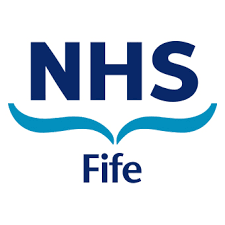- Surgical prophylaxis aims to reduce surgical site and healthcare-associated infection so reducing surgical morbidity (and mortality)
- Antimicrobial prophylaxis should only be prescribed for procedures that are “recommended” or “consider” in SIGN 104 guideline.
- Antimicrobial Prophylaxis is usually a single dose given within 60 minutes prior to the start of the procedure/skin incision. Repeat dosing may be required if the procedure lasts more than 4 hours or if there is intra-operative blood loss >1.5 litres. See table below.
- Restrict the use of agents with increased capacity for promoting C. difficile infection (cephalosporins, clindamycin, co-amoxiclav, quinolones) where possible considering the benefits and risks of use.
- It is important to assess the nature of the reaction for those patients labeled with a penicillin allergy. Consider de-labelling where indicated.
- Patients with complex issue including multi-drug resistant carriage should be discussed with a Microbiologist pre-operatively.
- For patients colonized with MRSA, decolonisation therapy following local policy should be used prior to surgery when possible.
Surgical prophylaxis

| Antibiotic | Dose | Administration | Prolonged surgery | >1.5L blood loss (redose after fluid replacement) |
| Amoxicillin | 1g |
IV bolus over 3-5 mins |
If surgery >4 hours, Repeat original dose | Repeat original dose |
| Gentamicin | See below |
Doses up to 300mg - IV bolus over 3-5 mins. Doses above 300mg - IV infusion in 100ml of normal saline over 20-30 mins |
If surgery lasts > 8 hrs AND eGFR >60ml/min, then redose with full original dose | Give 50% of original dose |
| Metronidazole | 500mg | IV infusion over minimum of 20 mins |
If surgery >8 hours, Repeat original dose |
Repeat original dose |
| Teicoplanin |
<65kg - 400mg ≥65kg - 800mg |
IV bolus over 3-5 mins | No repeat dosing required | Give 50% of original dose if ≥1.5L blood loss within the first hour of operation |
|
Avoid if eGFR <20: seek advice on alternative from microbiology In renal transplant patients avoid Gentamicin and seek advice from microbiology or renal team |
|||
| Height (feet and inches) | Height (cm) | Gentamicin dosing (mg) | |
| Males | Females | ||
| 4'8 - 4'10" | 142 - 147 | 160 | 140 |
| 4'11" - 5'3" | 148 - 160 | 180 | 160 |
| 5'4" - 5'10" | 161 - 178 | 240 | 200 |
| 5'11" - 6'2" | 179 - 188 | 300 | 260 |
| ≥ 6'3" | ≥ 188 | 300 | 300 |
| Procedure |
SIGN 104 and NHS Fife Recommendation |
Suggested antibiotic(s) |
| UPPER GI | ||
| Oesophageal | Recommended | Amoxicillin* + Gentamicin + Metronidazole |
| Stomach and duodenal | Recommended | |
| Gastric bypass | Recommended | |
| Small intestinal | Recommended | |
| HEPATOBILIARY | ||
| Bile duct | Recommended |
Amoxicillin* + Gentamicin + Metronidazole ~High risk: intra-op cholangiogram, bile spillage, conversion to laparotomy, acute cholecystitis/pancreatitis, jaundice, pregnancy, immunosuppression, insertion of prosthetic devices |
| Gall bladder surgery - open | Recommended | |
| Gall bladder surgery - laparoscopic | Not recommended but should be considered in high risk patients~ | |
| LOWER GI | ||
| Appendicectomy | Highly recommended | Amoxicillin* + Gentamicin + Metronidazole |
| Colorectal surgery | Highly recommended | |
| ABDOMEN | ||
| Hernia repair groin, inguinal / femoral with or without mesh | Not recommended | |
| Hernia repair groin, laparoscopic with or without mesh | Not recommended | |
| Hernia repair, incisional with or without mesh | Not recommended | |
| Open/laparoscopic surgery with mesh (e.g. gastric band or rectoplexy) | Not recommended but should be considered in high risk patients |
If necessary: Amoxicillin* + Gentamicin + Metronidazole |
| Splenectomy | Not recommended but should be considered in high risk patients |
If necessary: Amoxicillin* + Gentamicin + Metronidazole High risk: immunosuppressed Note, not carried out as an elective procedure in Fife. If undertaken would be as part of a procedure where suitable prophylaxis would already be given. |
| Clean-contaminated procedures where no specific evidence is available | Recommended | Amoxicillin* + Gentamicin + Metronidazole |
- *Patients who have a true allergy to penicillin or who are MRSA positive should be given teicoplanin instead of amoxicillin.
- If a patient is on treatment and requires surgery the patient may not need additional prophylaxis if the antibiotic(s) they are on cover(s) the pathogens that would be expected to cause an SSI for that procedure. However, it must be ensured that treatment antibiotics are not delayed/missed while the patient is in theatre.
